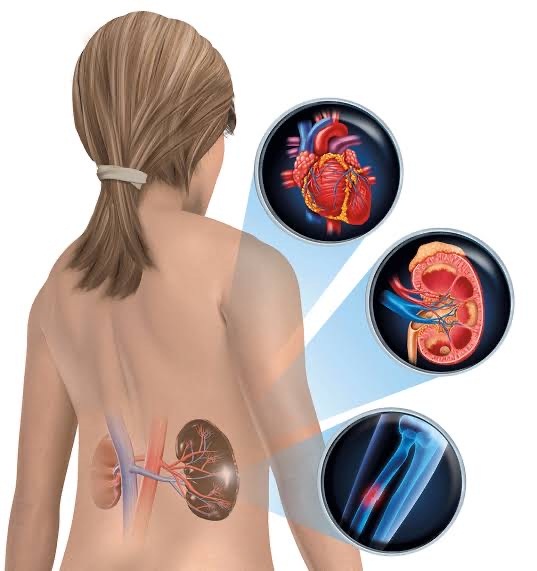Having a stone in your kidney can be a painful and recurrent condition that is increasing in the younger population. Recently, it has been seen that there is a rise in kidney cases among youngsters. Kidney stones are deposits of minerals and salts that are formed inside the kidney. They affect parts of the urinary tract, from the kidney to the bladder. When the stone moves through the urinary tract, it causes a urinary tract infection, severe pain, vomiting and can cause other complications like fever and sepsis.
The impact of heat waves
Recently, India has been experiencing scorching heat, with temperatures above 45 degrees Celsius in many regions. This extreme heat causes various direct and indirect health impacts, which include dehydration and an increased risk of kidney stones. Dehydration causes a reduction in the volume of urine, which allows minerals to crystallise and form stones.
Rising incidence among younger populations
Traditionally, kidney stones were seen among older adults. However, according to recent trends, there has been an increase in the number of younger adults being diagnosed with kidney stones. Various factors contribute to the rise, including sedentary lifestyle, environmental factors like heat waves, and eating habits.
Study insights
As per a study done by the All India Institute of Medical Sciences (AIIMS), it was shown that there has been an increase in kidney stone cases among teenagers. The researcher also added that it is caused by longer exposure to high temperatures, sweating, reduced liquid intake and a higher concentration of stone formation in urine.
Recent news reports
There is a sudden surge in cases related to kidney stones in states that are affected by heat waves. Hospitals in these regions reported an increase of 30% in emergencies for kidney stones during the summer months.
Factors contributing to the rise
• Dehydration
It is the most direct consequence of a heat wave. The body loses more fluids, due to which urine becomes concentrated and increases the risk of kidney stone formation. Younger individuals are more vulnerable to it as they are more active and stay outdoors.
• Dietary habits
Modern eating habits include a high intake of processed foods, sugary beverages, and high-sodium food products, which contribute to kidney stone formation. When these eating habits are combined with dehydration, they create the perfect environment for the development of kidney stones.
• Sedentary lifestyle
The rise in sedentary lifestyles among urban youth increases the risk. Lack of physical activity leads to obesity, which is another risk factor for kidney stones.
Preventive measures
• Hydration
It is important to stay hydrated, as water helps dilute the substances in urine that cause stones. Individuals should aim to consume at least 3 litres of liquid daily.
• Dietary adjustments
Decreasing the consumption of salt, animal protein, and sugar lowers the risk of kidney stone formation. It is beneficial to add high-water-content fruits and vegetables to the diet.
• Regular check-ups
Routine medical check-ups help in the early detection of kidney stones and make it easy to manage them. Individuals with a family history of kidney stones should be more aware.
• Public health
The rise in kidney stone cases among the young population brings a whole new challenge to public health. It leads to an increase in healthcare costs, lost productivity, and long-term complications. Public health campaigns that are focused on prevention, awareness, and early intervention are essential. The sudden surge in kidney stone cases in India, especially among young adults, is a pressing health concern due to rising heat waves. Addressing the issues leading to the stone formation by creating awareness, taking preventive measures, and providing timely intervention. As there is a change in climate and its impact on global weather patterns, the importance of health measures becomes crucial.
(The author, Dr. Amit Tiwari, is a consultant-urology, at Manipal Hospital.)




